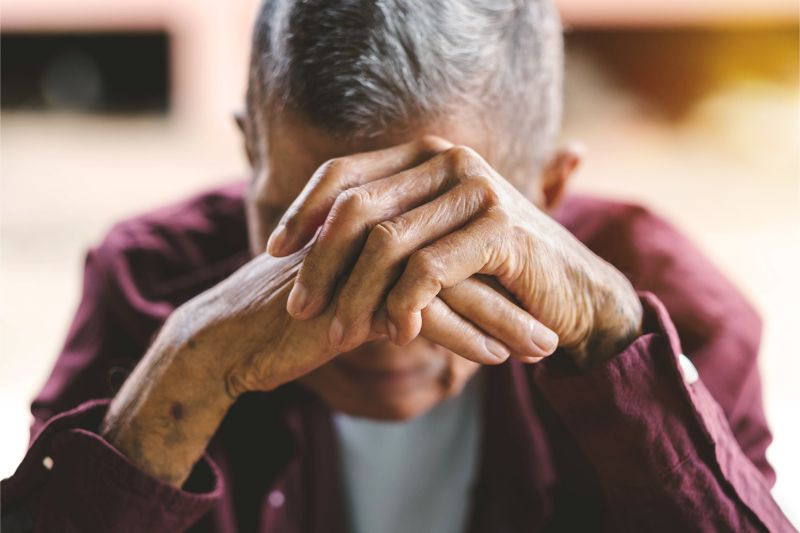Why Veterans May Develop PTSD Symptoms Later in Life

CCK Law: Our Vital Role in Veterans Law
What is Post-Traumatic Stress Disorder (PTSD)
Post-traumatic stress disorder (PTSD) is a mental health condition that can occur in people who have experienced or witnessed a distressing, shocking, or otherwise, traumatic event. Unfortunately, many veterans experience PTSD stemming from their military service. The symptoms of PTSD can often be very debilitating and have a negative impact on an individual’s life. Common examples of PTSD symptoms include the following:
- Re-experiencing the trauma through recurrent memories, flashbacks, and nightmares
- Avoidance of people, places, and activities that are reminders of the trauma
- Increased arousal such as difficulty sleeping and concentrating
- Hypervigilance
- Irritable or aggressive behavior
- Difficulty maintaining relationships with others
Symptoms usually begin within three months of the traumatic incident, but it is also possible for them to present later on in life. VA acknowledges three common symptom patterns in veterans with PTSD:
- Some veterans begin to have PTSD symptoms soon after the traumatic event occurs. These symptoms may last until older age.
- Other veterans do not have PTSD symptoms until later in life.
- For some veterans, PTSD symptoms can be high right after their traumatic experience, go down over the years, and then worsen again later in life.
VA’s National Center for PTSD
VA’s National Center for PTSD recognizes that for many veterans, memories of their traumatic experiences can still be upsetting long after they served on active duty. Many veterans do not even begin experiencing PTSD symptoms until decades later. There are a number of reasons why PTSD symptoms may increase with age:
Retirement
Having retired from work may make veterans’ PTSD symptoms feel worse because they have more time to think and fewer things to distract themselves from intrusive thoughts or recurrent memories. For many veterans, employment was also used as a coping strategy. Therefore, no longer having that structure in place can result in an increase or progression of symptomatology. Retirement can also trigger feelings of different types of losses, such as identity and/or income, which can further contribute to a veteran’s PTSD.
Increased Health Problems
As veterans age, they often experience an increase in health problems. Having more medical problems can also lead to an increase in PTSD symptoms. Specifically, PTSD has been associated with various other health conditions, including sleep apnea, cardiovascular disease, and obesity. Just as PTSD impacts these secondary conditions, these secondary conditions can reciprocally impact PTSD. Additionally, older veterans with dementia tend to experience more severe PTSD symptoms.
Substance Use and Unhealthy Coping Mechanisms
It is not uncommon for older veterans with PTSD to use alcohol and/or other substances to cope with their symptoms. However, if this unhealthy coping mechanism is removed, without a healthier one to replace it, veterans may feel as though their PTSD symptoms are worse. In other words, moving away from unhealthy coping mechanisms that were previously used to suppress PTSD symptomatology can lead to an increase in symptomatology.
Other Reasons
Other reasons why PTSD goes undiagnosed and untreated for so long can include the following:
- Veterans may not think of their past military-related experiences as trauma
- Veterans may feel too ashamed or guilty to tell anyone
- PTSD symptoms are misattributed to other problems or conditions
- PTSD screening is less common in older adults, including veterans
Late-Onset Stress Symptomatology (LOSS)
While many older veterans have functioned well since their time in the military, they may begin to think more or become more emotional about their traumatic experience later in life. Looking back on and trying to make sense of their experiences in the military can trigger Late-Onset Stress Symptomatology (LOSS). LOSS refers to the development of increased thoughts and memories about, and emotional responses to, one’s traumatic experiences. Symptoms of LOSS are similar to those of PTSD, but tend to be fewer in number and less severe. LOSS in particular appears to be closely related to the aging process in veterans, as is less associated with clinically significant distress and is more related to normative life stressors and the search for meaning and growth in late life.
Recommended Treatments for PTSD in Veterans
Research shows that effective treatments for PTSD include different types of psychotherapy and/or medication. Specifically, trauma-focused psychotherapies are the most highly recommended type of treatment for PTSD. This type of treatment focuses on the memory of the traumatic event or its meaning and uses different techniques to help veterans process such events. Examples of trauma-focused psychotherapies with the strongest evidence include prolonged exposure, cognitive processing therapy, and eye movement desensitization and reprocessing.
About the Author
Share this Post
